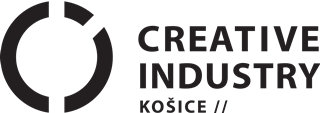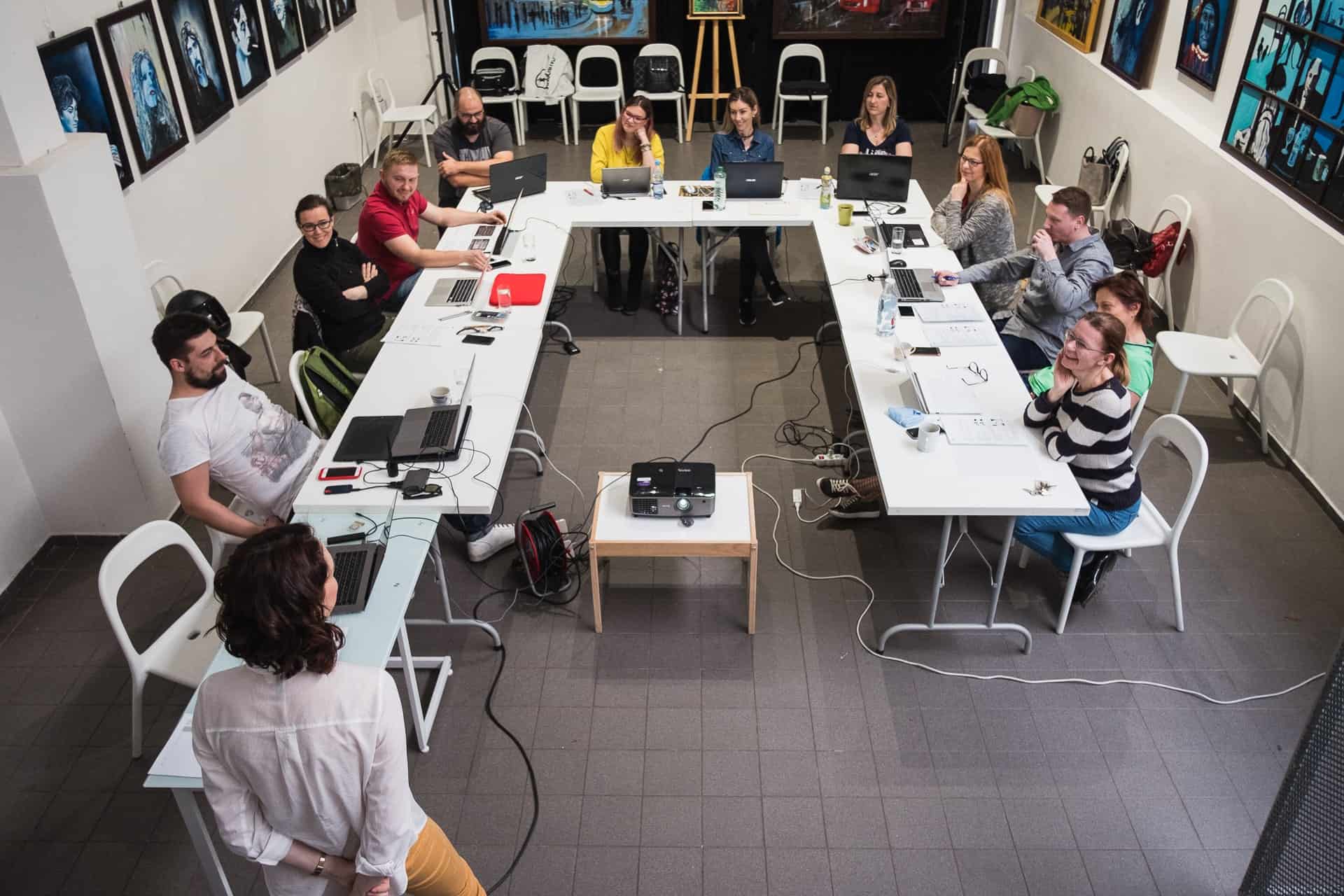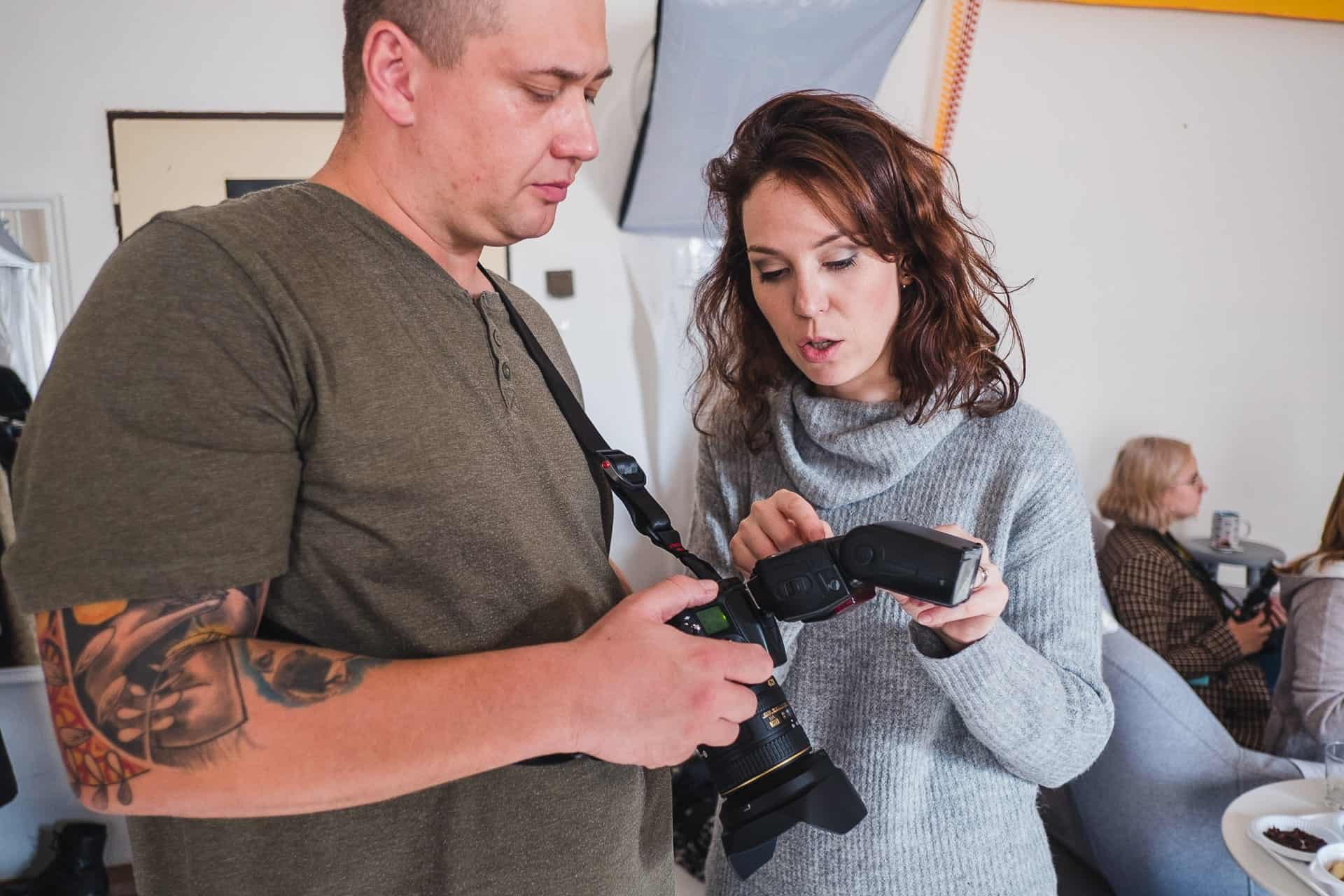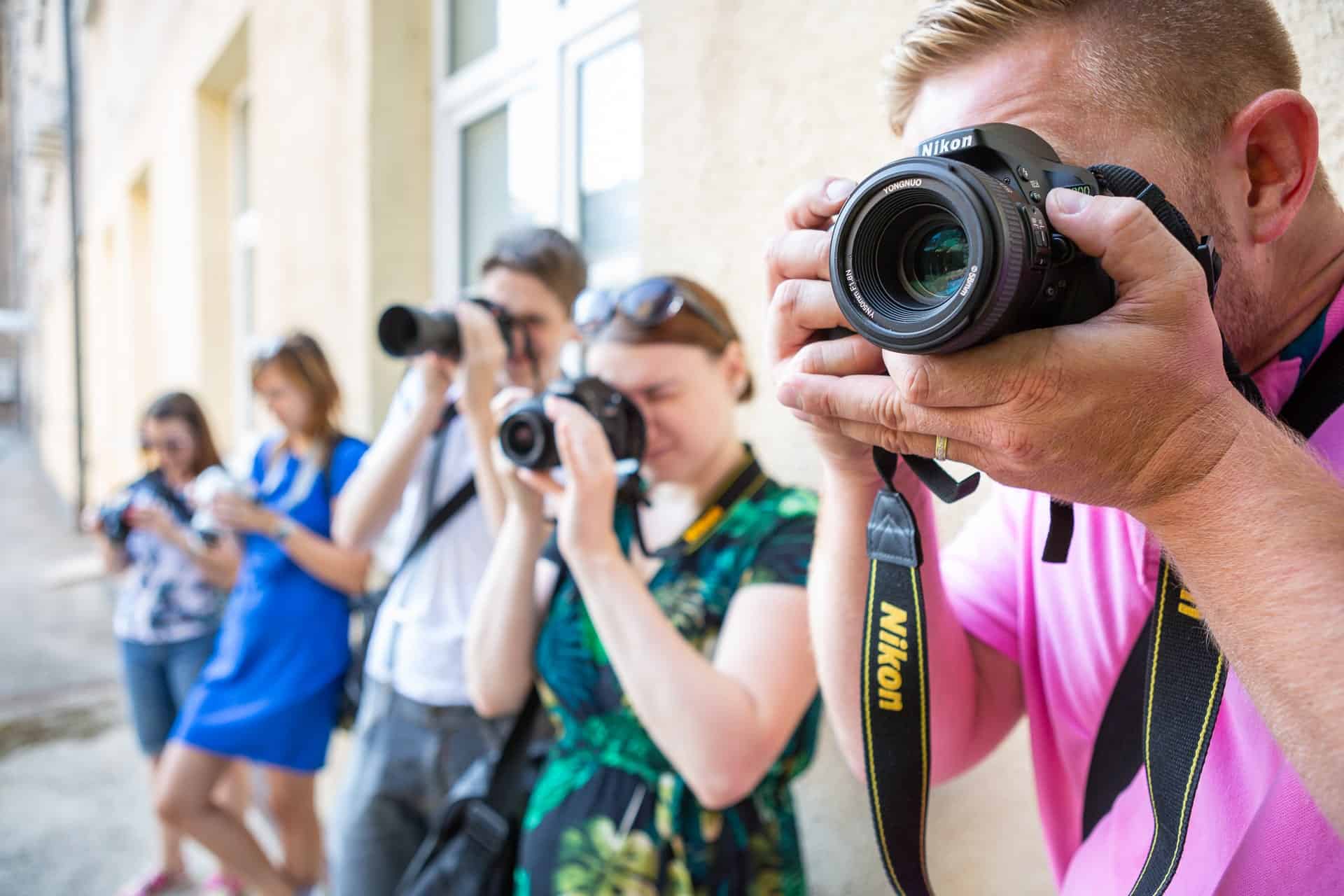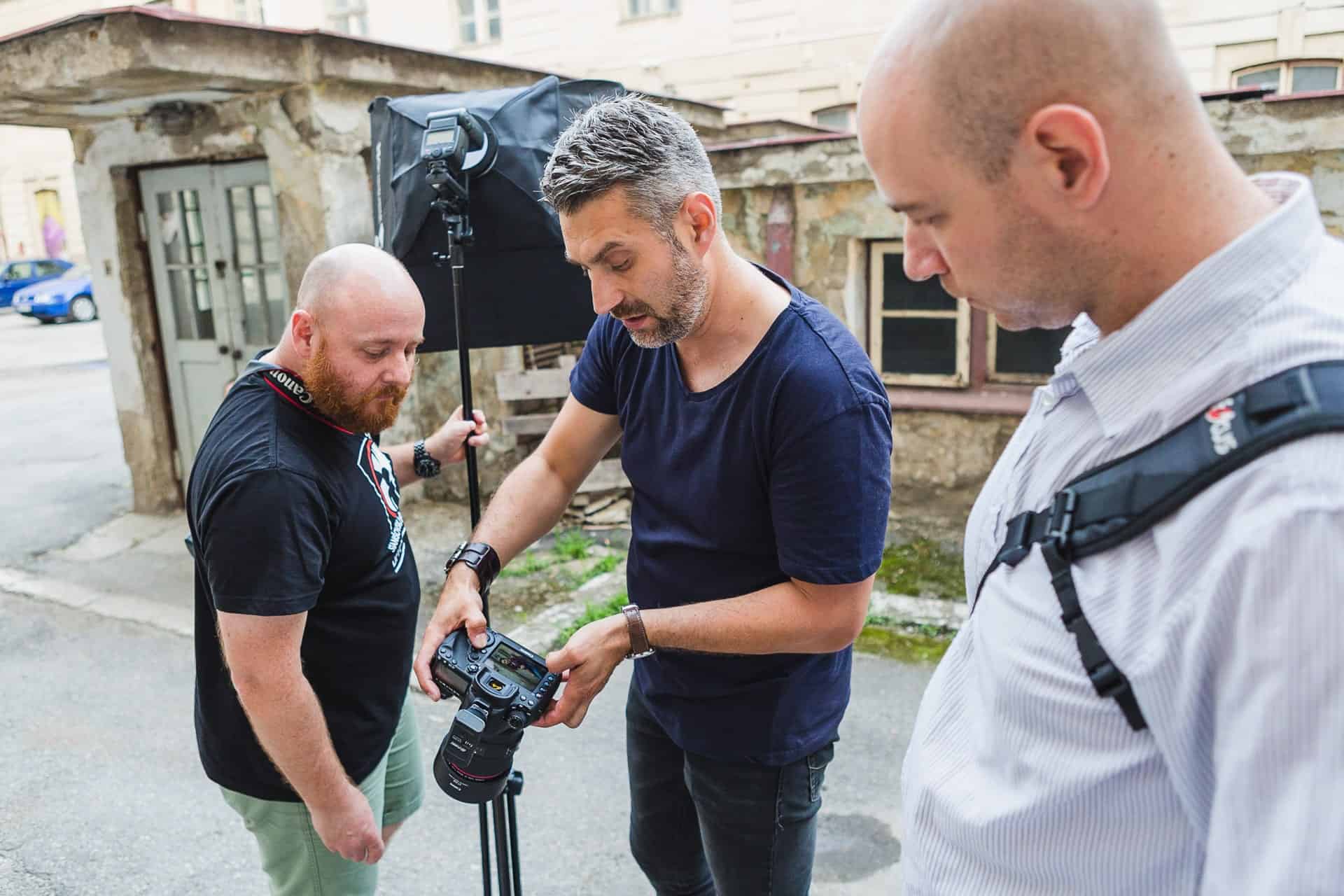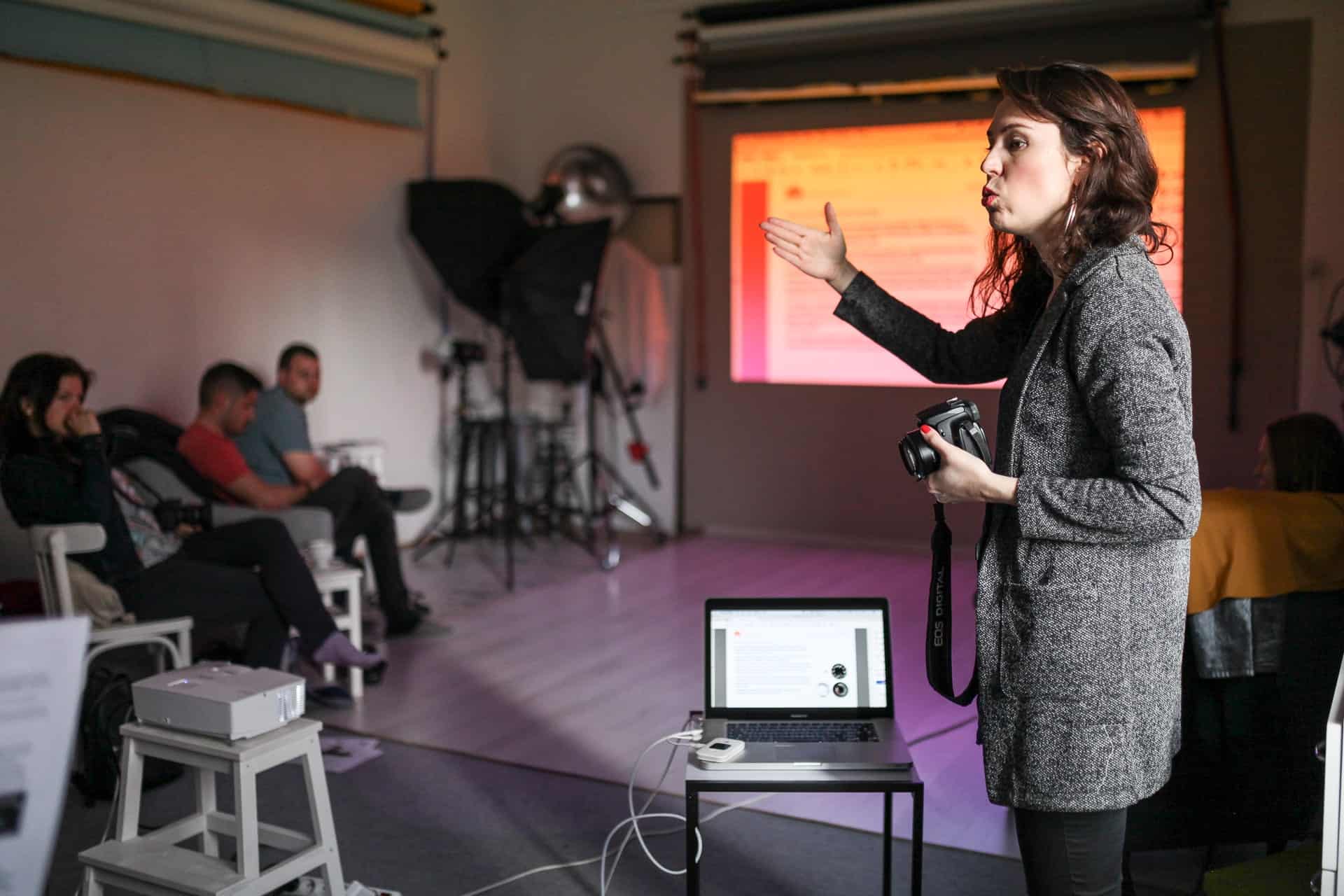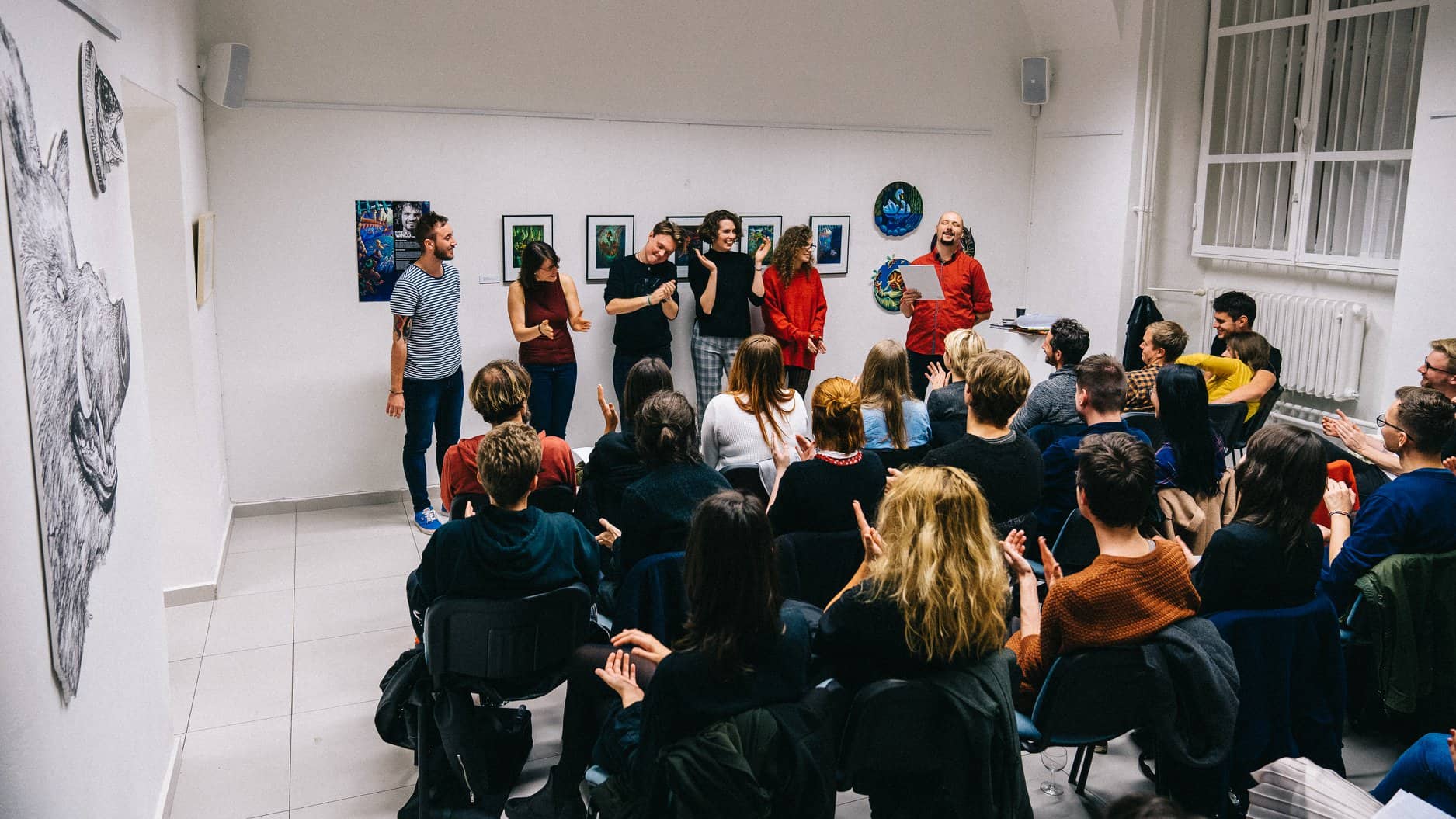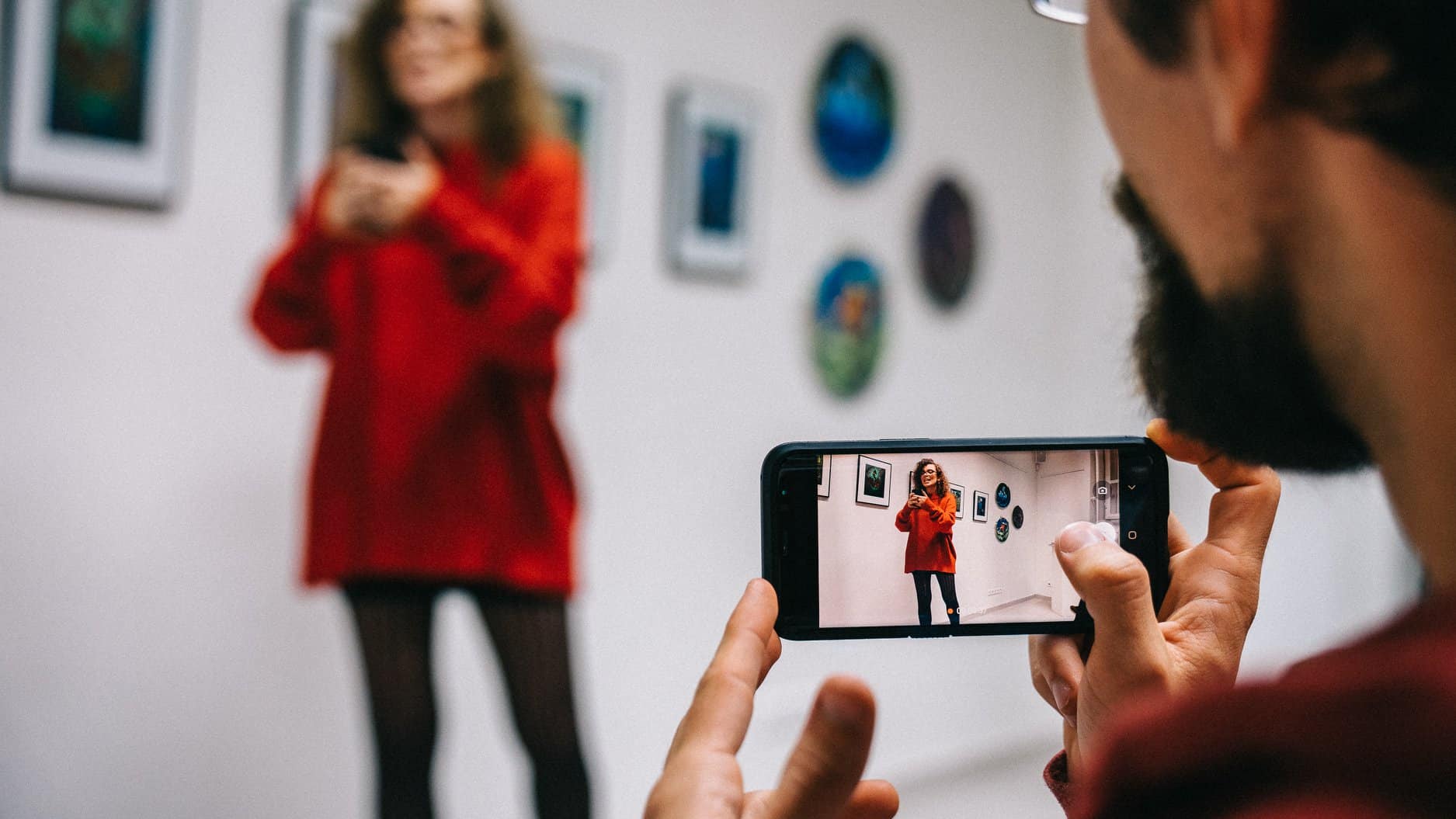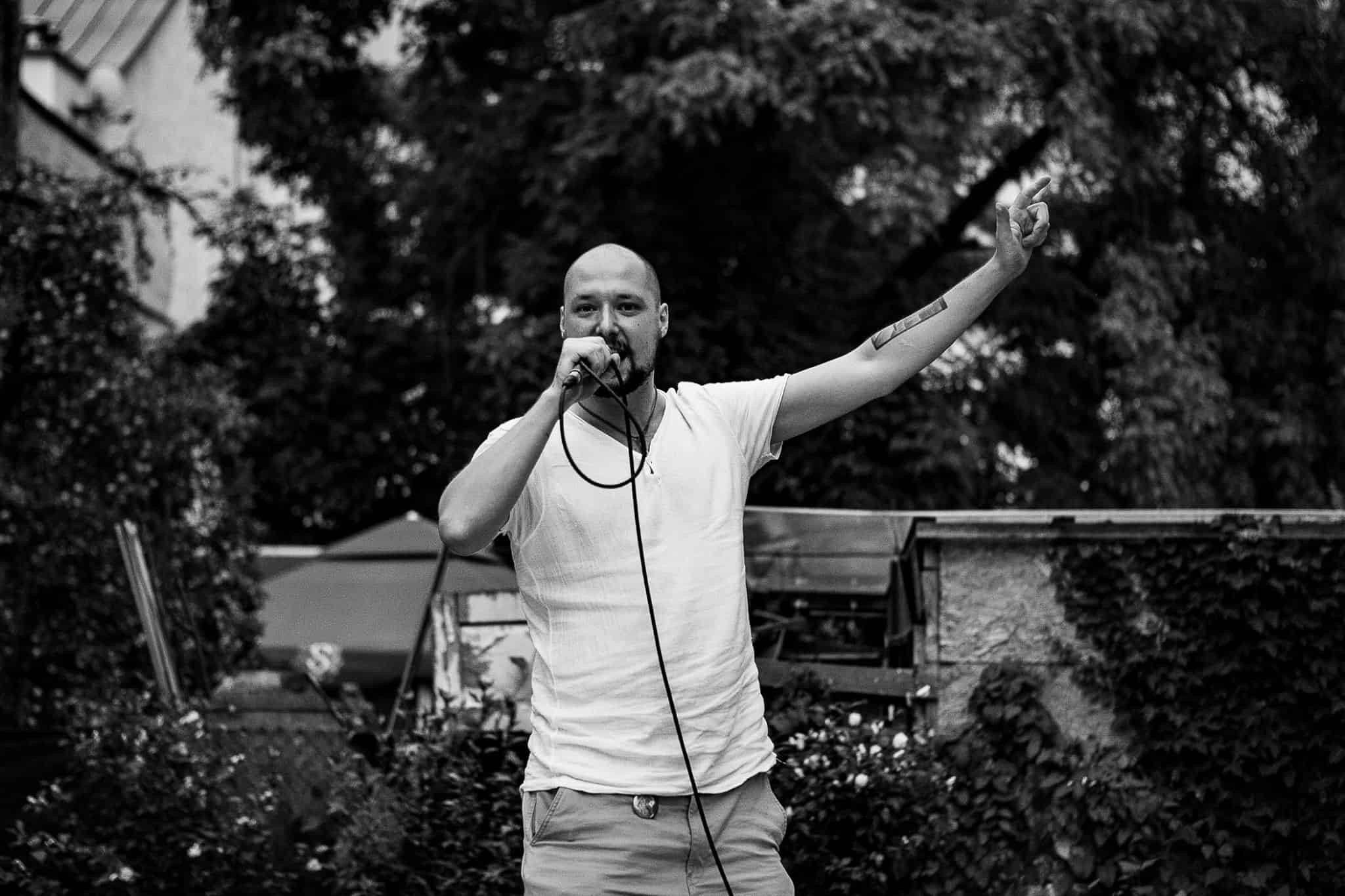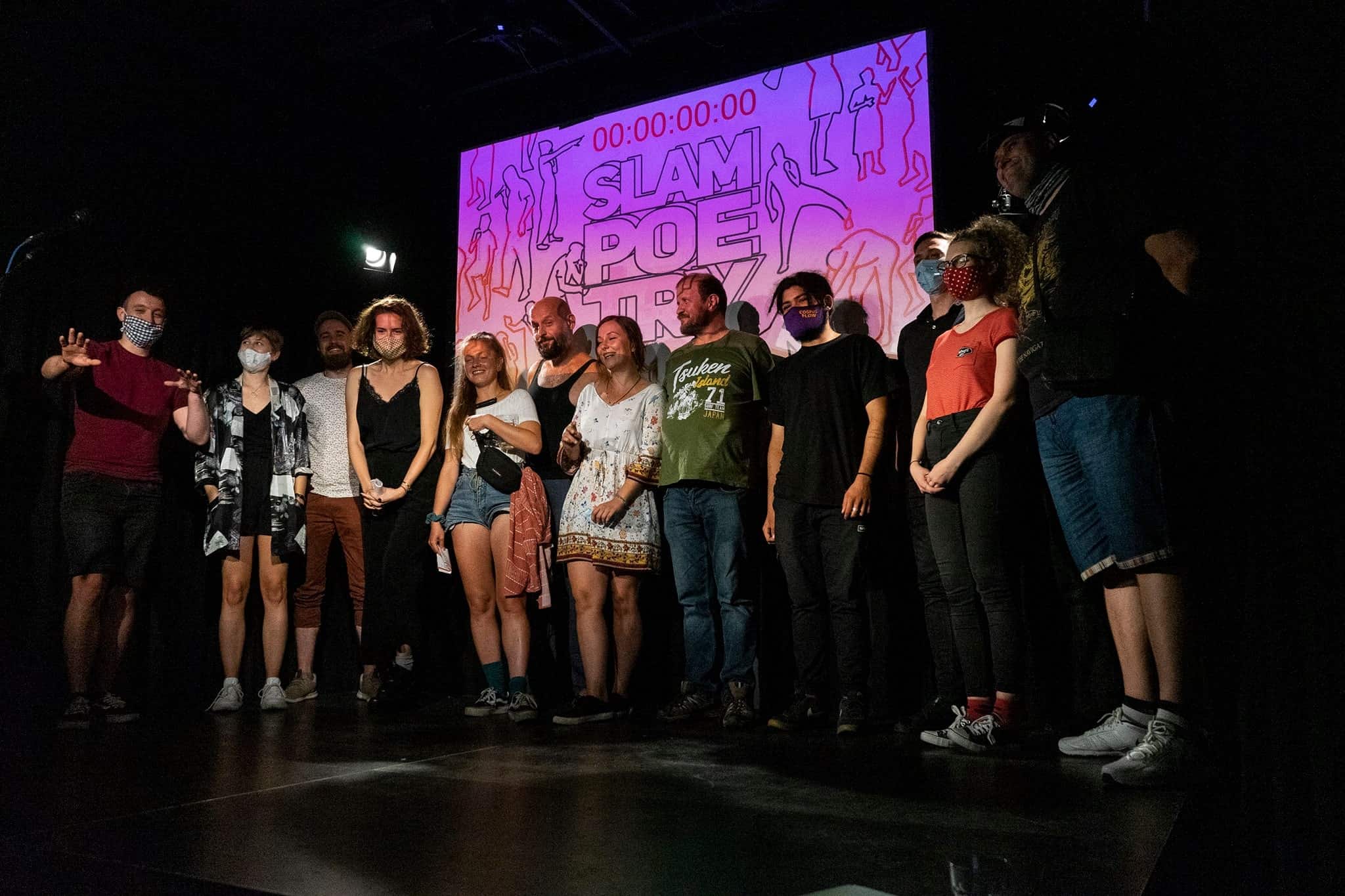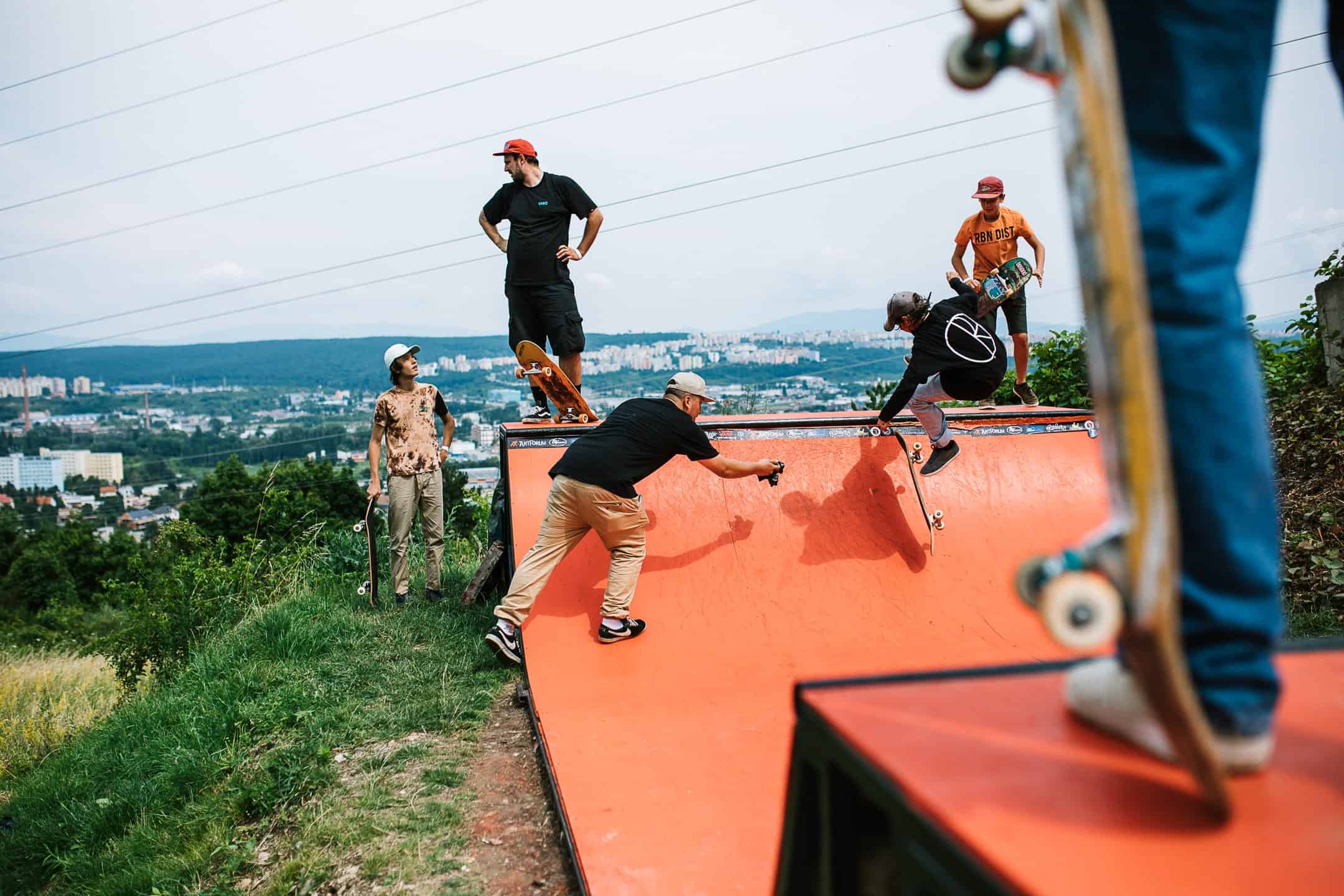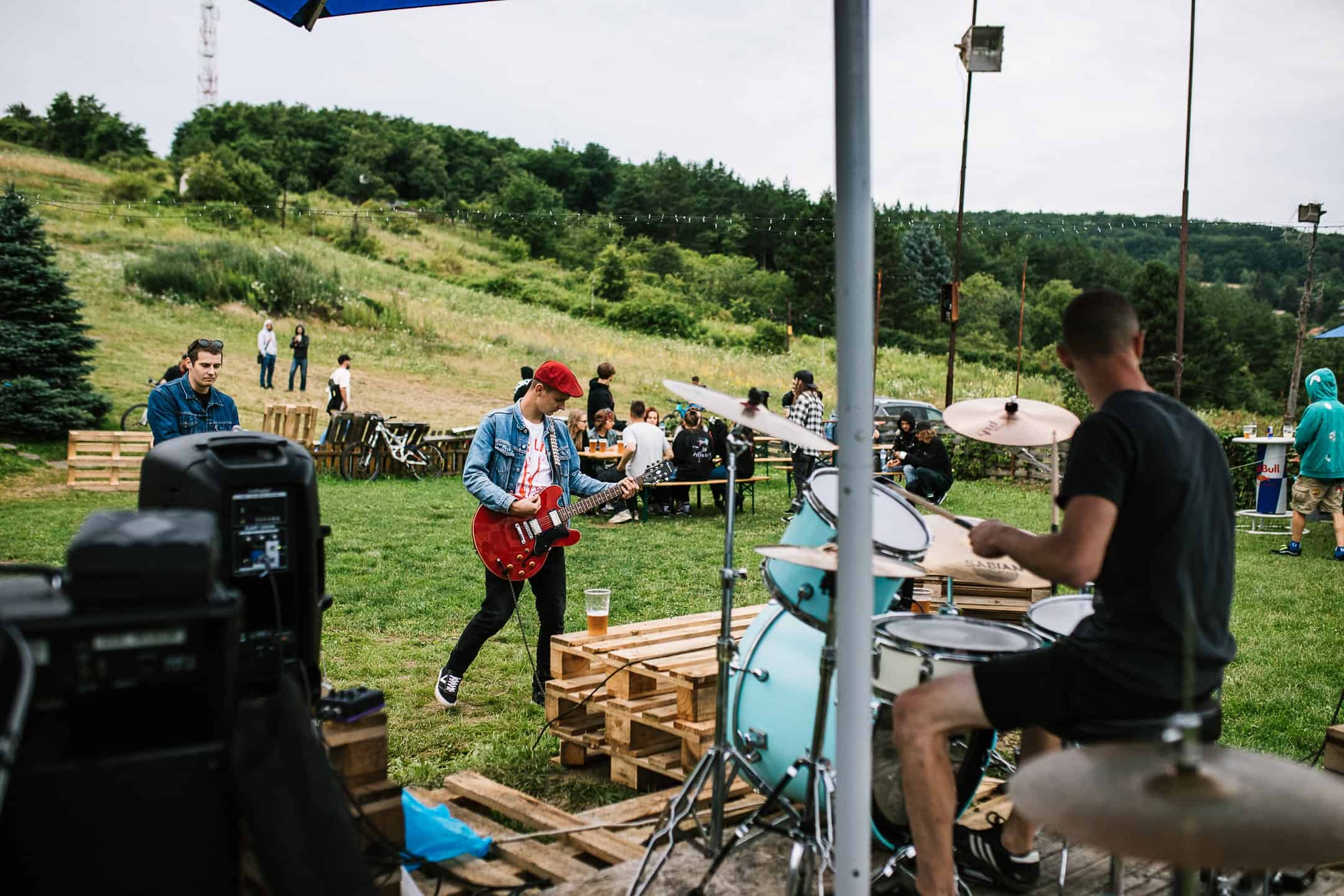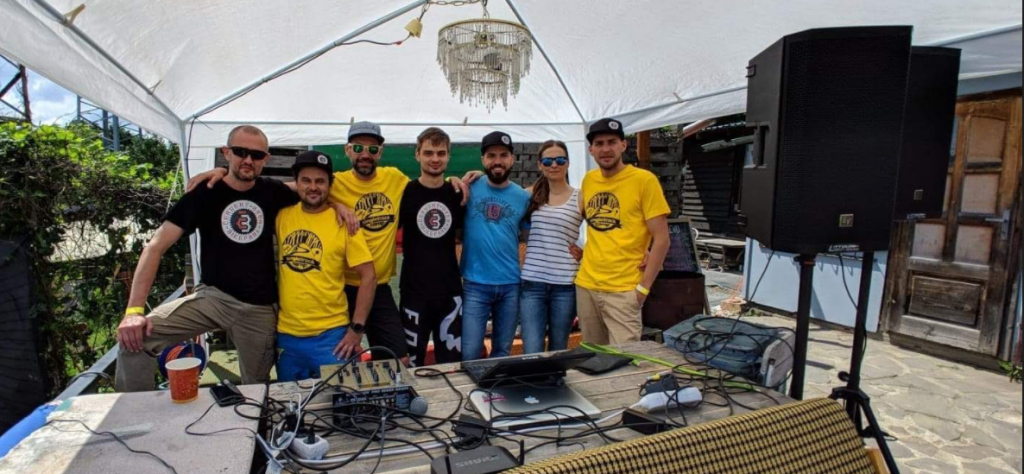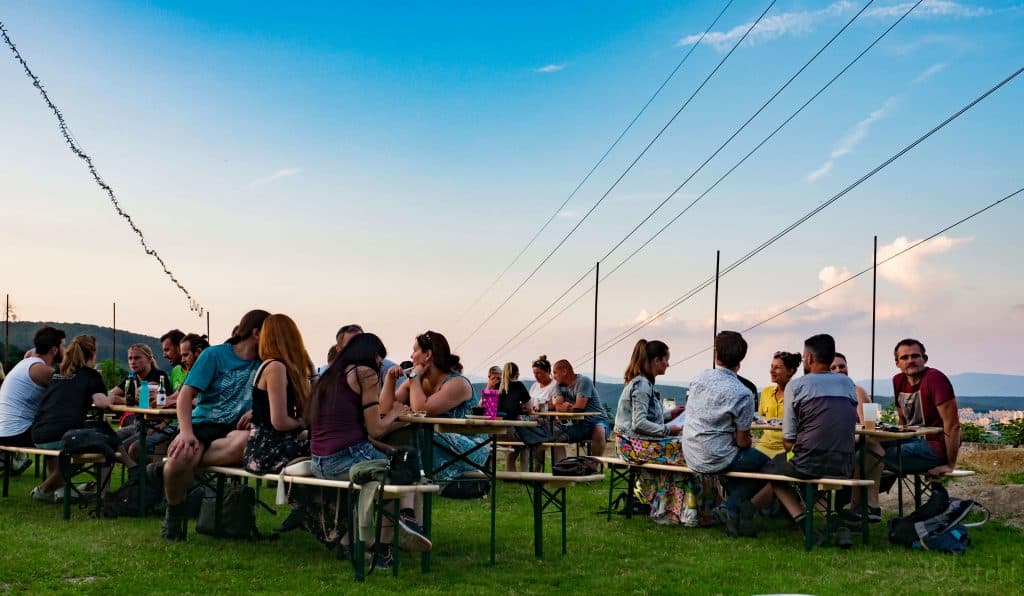Among the Escalator educational and mentoring program participants, you will find people from the non-profit sector, culture, and those who are engaged in more commercial activities. When selecting them, we paid particular attention to a clear vision and desire to move forward, which unites them. Michaela Eliáš from Photography Courses, Tomáš Straka from Slam Poetry SK and Matúš Maršalko from BIKE PARK Červený breh told us about it.
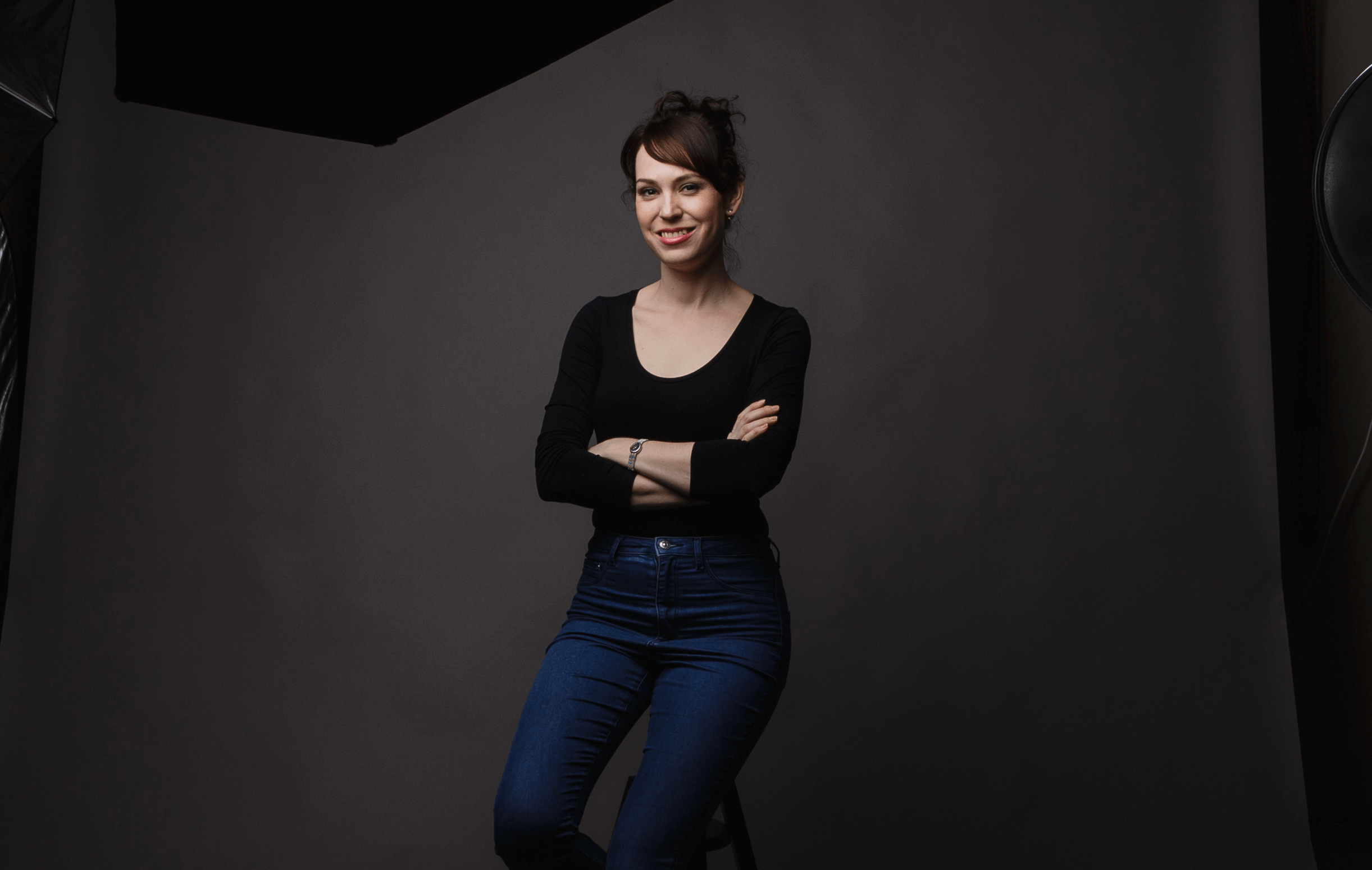
Michaela Eliáš, Photography courses
I am thrilled to be part of the Escalator training program with my Photography Courses project. Although I have been organizing photography courses sporadically since 2015, I have only been actively involved in it for the last 3 years. During that time, I perceive the great potential of the whole project and the fact that my growing business has started to grow slightly over my head. From the beginning, I saw Escalator as an excellent opportunity to stop, re-evaluate everything and get an independent view of my work. Even before joining the program, I knew the importance of planning, budgeting, and marketing strategies. Still, when no one above you systematically guides you to these extensive tasks, it is tough to force yourself to do so. There are always urgent daily tasks that overshadow the significant ones: the project’s sustainability and the vision for the future. I am grateful that my mentor, Paul Bogen, helps me divide challenging, complex tasks into smaller ones, provide me with know-how from my own practice, and give me feedback on the assignments. We found out that we are literally soul mates about Excel spreadsheets and various profitability calculations.
The biggest revelation for me was a detailed analysis of my products’ profitability – educational photography courses – concerning their price and the amount of energy that their organization requires. Of course, I’ve done some calculations before. I’ve never set the prices for events based on a feeling, but I missed certain factors that affect the project’s profitability, and in fact, we operated on the edge.
Since no grant supports my business, the only income source is the participants’ entrance fees. This must cover not only the time spent on the event and the remuneration for the lecturer or rent but also several other invisible costs related to the operation, such as photography, web and online advertising fees, graphic programs, accounting, remuneration for administrative assistants, invoices, taxes, insurance, levies and the like. The second part of the cost is actually most of the price. Only when a person sits down seriously for a few hours will he/she find out what numbers he/she has to reckon with. Then comes the realization of which activities are profitable and which are literally loss-making. This is a prerequisite for good planning of activities for the future.
Another great moment for me was the elaboration and subsequent analysis of the customer survey results, which my mentor Paul advised me to carry out as one of the first activities. Like the budget, I also got to know the visitors of my courses unsystematically. However, knowing the audience is the basis of a good marketing strategy and creating a range of courses.
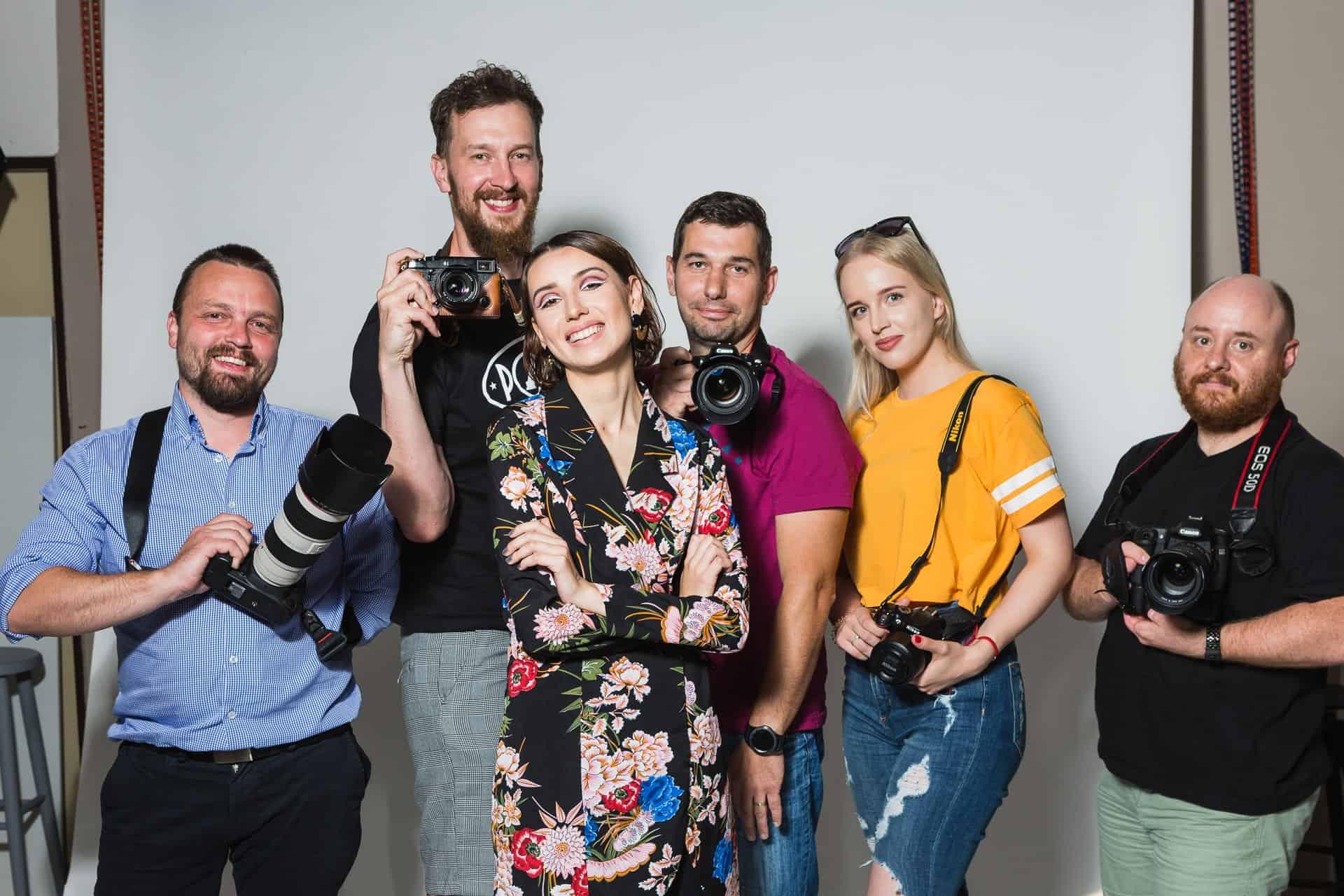
It was key for me to realize that I can’t do everything alone. Although I have previously worked with several photographers who regularly teach courses, I was alone in all organizational tasks, administration, and marketing. I was quite frustrated that I devote myself less and less to my own activities and more and more just managing the company. However, as I found out shortly after Escalator started that I was going on maternity leave in a few months, finding a replacement and learning to delegate tasks to other people was essential for me. Jožko and Jarka have worked with me before, but their competencies and list of tasks have expanded considerably. As a great perfectionist, I am demanding of my assistants, and I know it is not easy for them. I am grateful that we are gradually succeeding in getting into a new work system, according to which everyone has clear tasks and many processes take place without my input.
In my opinion, financial literacy and the ability of long-term planning are lacking in the majority of people who start their projects in the field of the creative industry in Slovakia today, whether it is a non-profit organization or a business. Without mastering these skills, it isn’t easy to maintain and expand your creative activities in the long run. One can follow intuition and do things spontaneously, but this only works on a day to day basis. It is equally important to learn to delegate tasks and use teamwork because if the whole project is based on only one person, it will easily fail.
I dare say that it would take me years to come up with my mentor’s recommendations in Escalator. I believe that this education has saved me a lot of disappointment and increased hances that even if I stop working actively for a long time and become a mother, my “child” Photography Courses will survive and continue to function.
I admit that I really lack personal contact with mentors and other participants. Although online meetings via Zoom are very well prepared and rich in content, there is not much room for immediate informal communication, friendships, or networking. Those precious moments happen during breaks between the official program or when the group goes together for a beer in the evening. Maybe there will be room for that in the future.
I would certainly welcome the possibility of consulting mentor Paul Bogen over time and evaluating what has been achieved from the planned goals. However, I see the greatest potential in further cooperation with CIKE, as it is a local partner who, among other things, organizes educational activities similar to us.
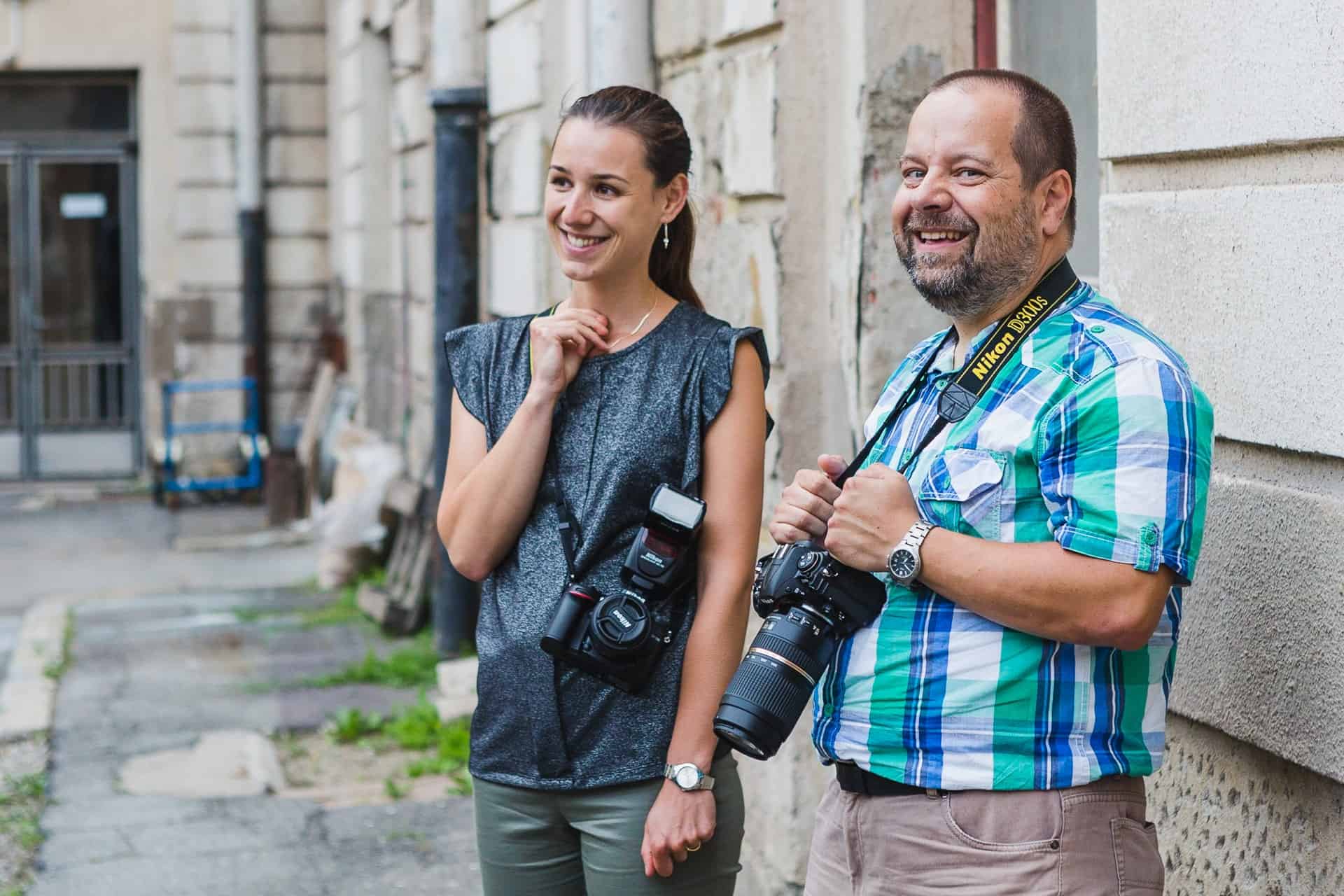
In addition to the benefits mentioned above, thanks to Escalator and the analysis of my business’s profitability, I realized the importance of fundraising and actively seeking opportunities to support my activities from public sources.
It would be a great pity to carry out only those activities that are profitable within our private photo school. Due to high prices, many of our courses would become unavailable to a large group of people. However, our goal is not only to make a profit but also to develop a community of photography enthusiasts. We do not want to implement educational activities only as a strict transfer of knowledge in a precisely defined time. We want to offer starting photographers a platform for meeting, networking, and making new friends and, for example, for using professional photography under favorable conditions. We want to connect professionals in the field with the people to whom they pass on their experience.
We also plan to organize some club activities and facilitate various lectures and discussions with artists and photographers. These should take place in schools, galleries, and other cultural organizations or within the future creative center in Košice. We also can provide training within the activities of the mentioned institutions or for their employees. We have been creating teaching materials for our courses for years, and we would like to publish them. We would like to regularly hold exhibitions of works by graduates of our courses. In short, we have a bunch of plans for which “revenue” from our course is just not enough. That is why I am looking forward to the topics of fundraising in Escalator.
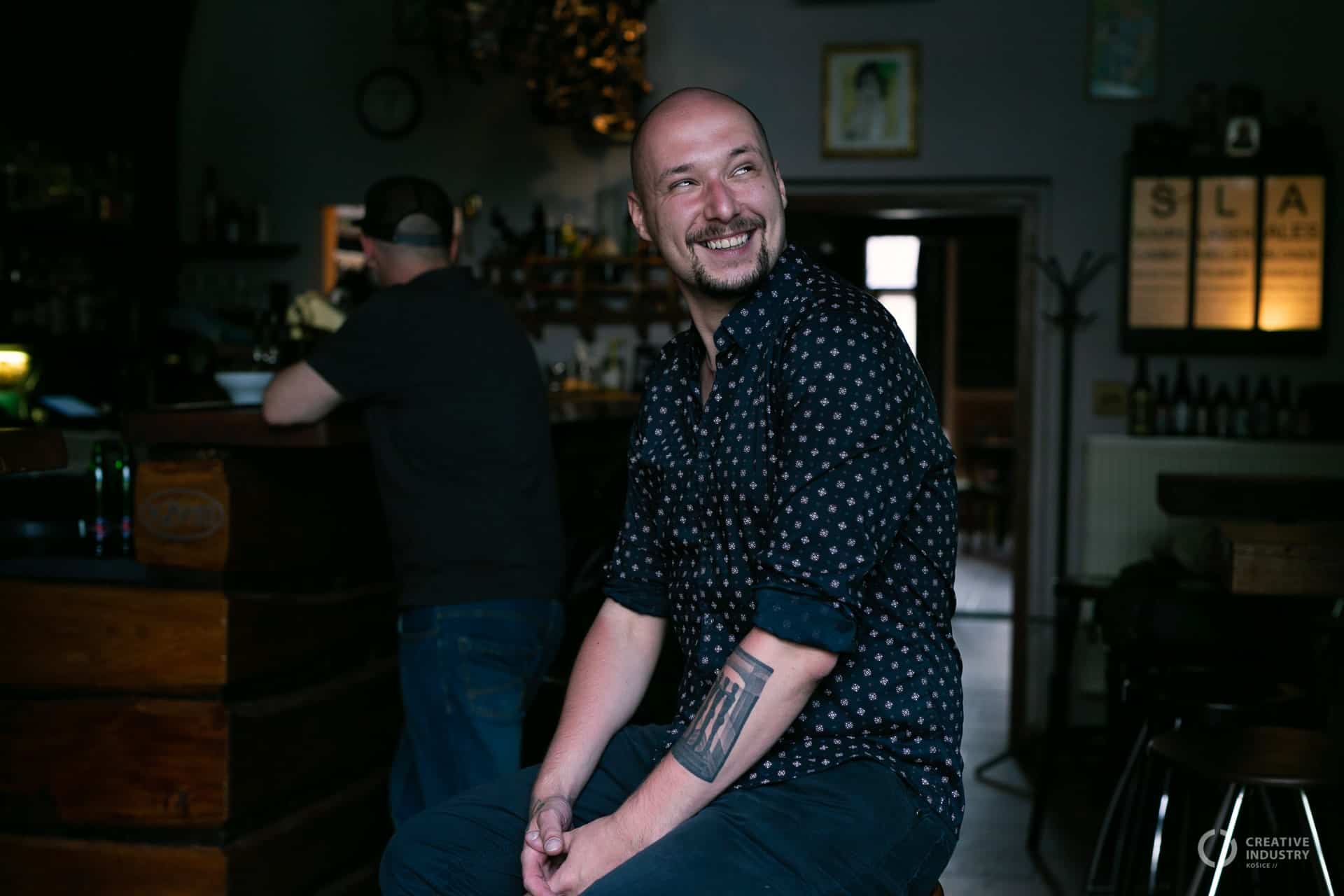
Tomáš Straka, Slam Poetry SK
The Escalator program is very cool. It is further proof that Košice was and is a city of European format. It works well, efficiently and at a top-level – and that’s how it should be. I am very proud to be part of such a program.
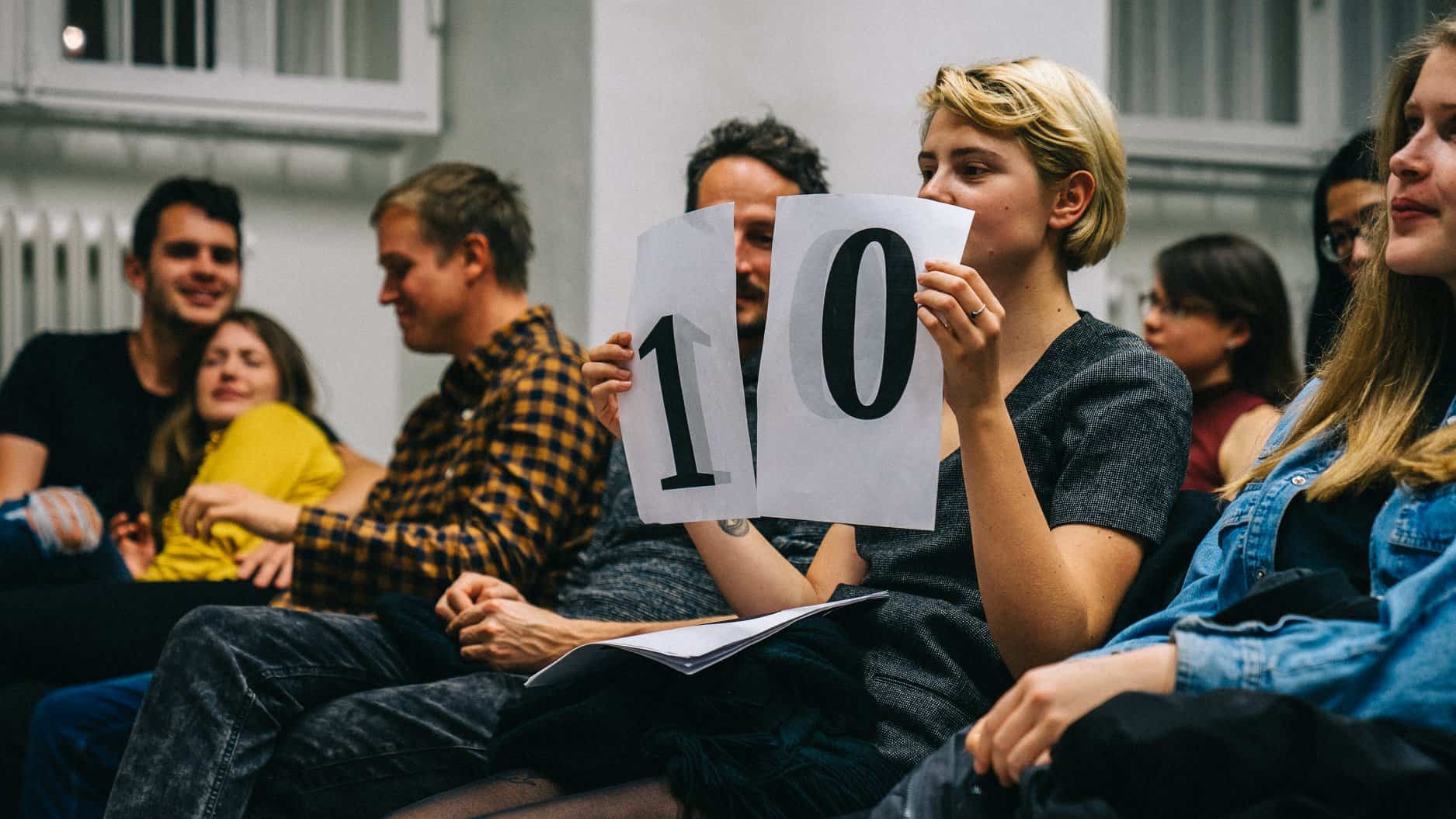
In Prague, where I grew up artistically, organizational development is perceived more as a “vulgar” word. Everything there works intuitively, spontaneously, communally, but that only works to a certain point. Escalator helped me not to think “out of the box” but “inside the box,” and thus, focus on organizational structures and managerial principles, without which talent or creativity are useless. If we want professional art and quality cultural and creative industries, it should be made up of professional artists and art managers, which is impossible without education.
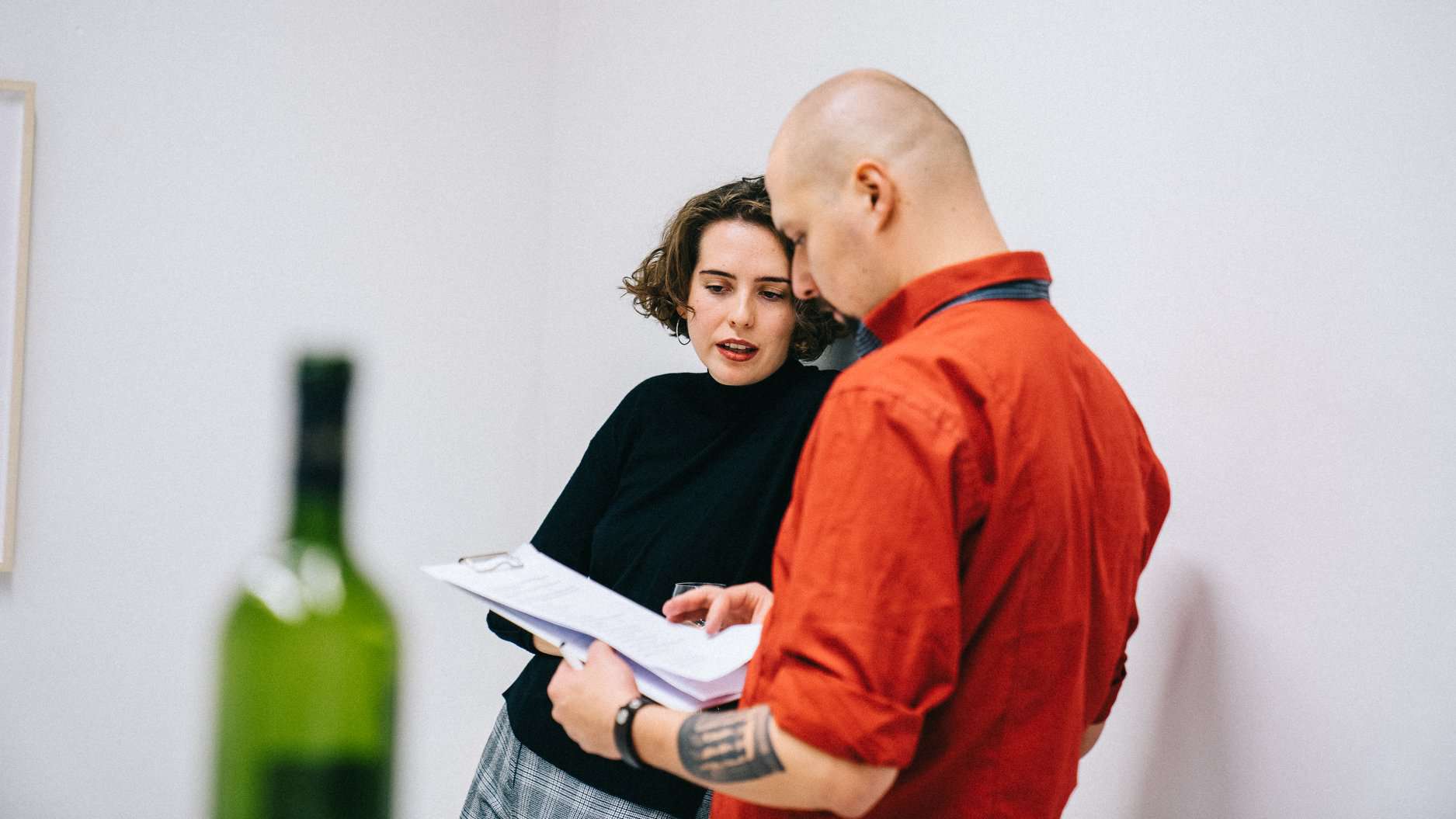
In Slovakia and the Visegrad area, culture has long been a neglected phenomenon in which years of hatred and envy have prevailed, as the stage is small and there are many interested parties. Only the “Za slušné Slovensko” protests showed us that we are on the same boat and pulling on one rope. If we want to maintain this sense of belonging, programs like Escalator are essential. There is nothing more important than networking and fair cooperation.
Escalator helps us realize that we are all part of the European area and that the quality of our work and our goals are essential. It is a program that would not exist ten years ago, but it is terrific that it does today.
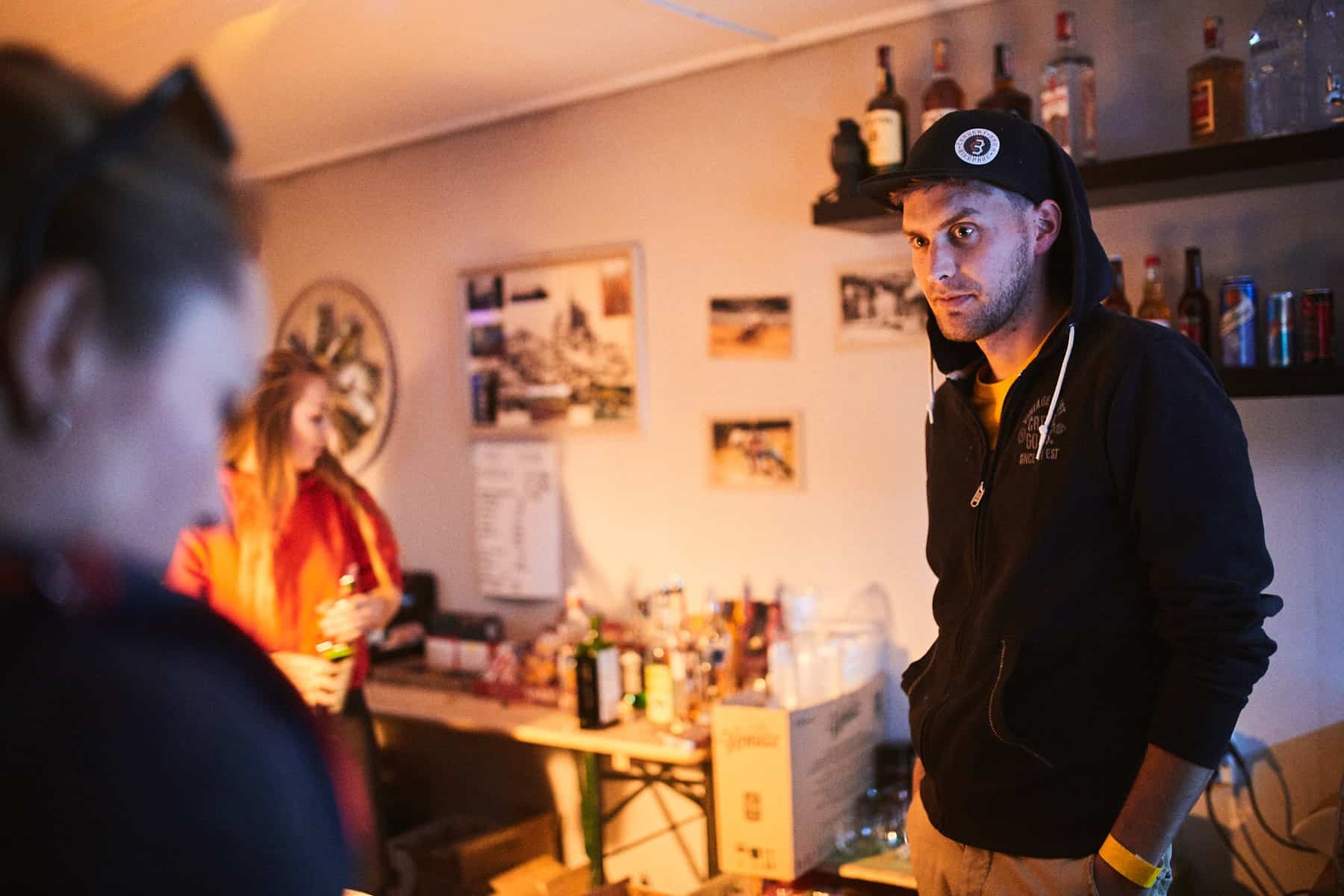
Matúš Maršalko, BIKE PARK Červený breh
I perceive the course of Escalator very positively. We can use a lot of information in our team almost immediately. I also perceive the program’s transfer to the online space positively, as the current situation does not allow us to meet in person. The number of topics that the mentors gradually introduce to us helps us perceive the problems and contribute to our work. At the same time, we can exchange views and experiences with other participants in the program.
Personally, I was fascinated by the idea of greater openness in communicating with the audience, colleagues, and visitors. Opening a discussion on how we can improve things, different people’s opinions, and many new ideas can be key to better community development and progress.
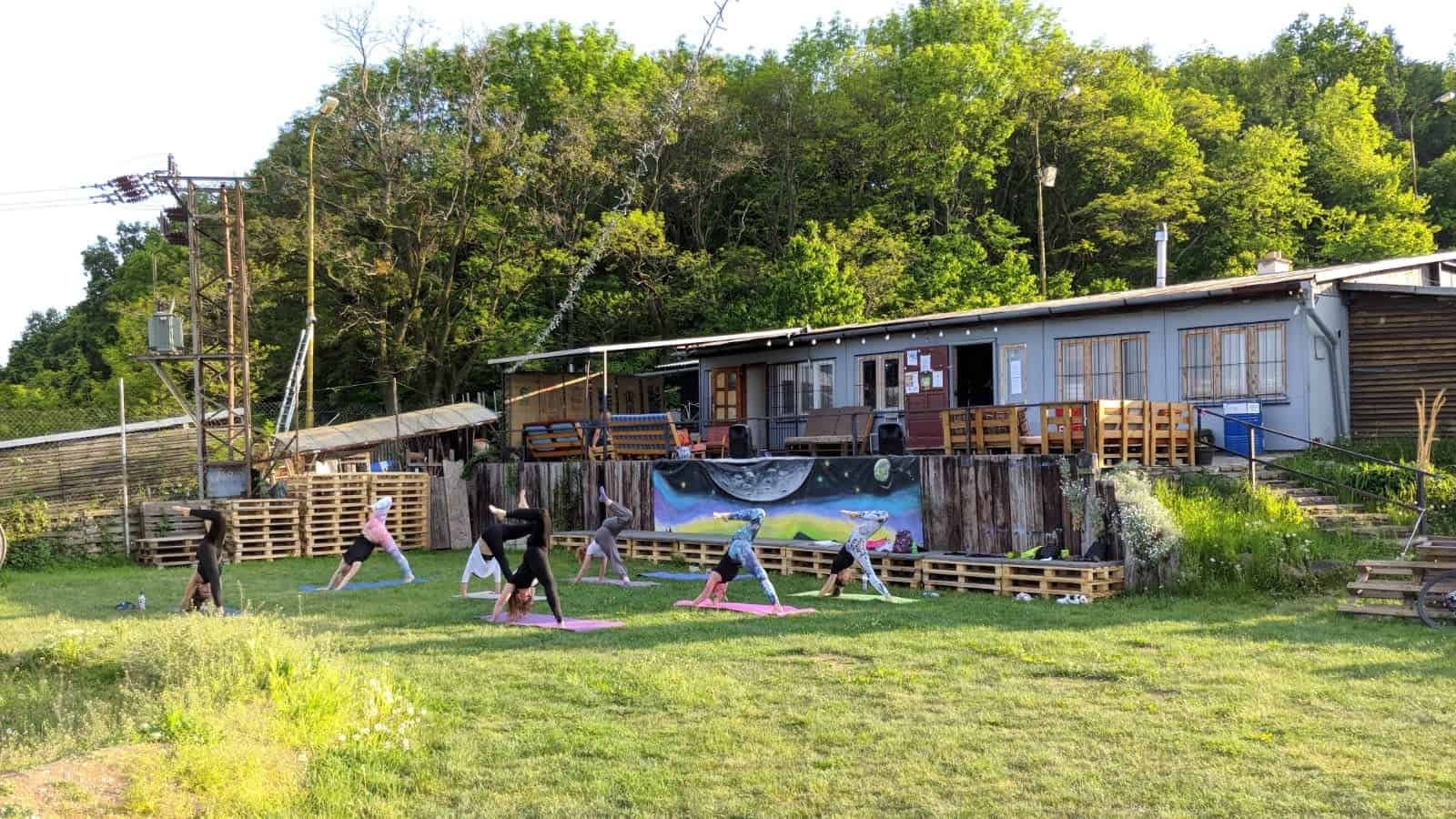
We are constantly going through changes, not only in our work. Education helps us find a way out of different situations, especially if it comes from people who have experienced similar situations and have more experience in the given issue.
We can draw information from this and partially apply it in our work. Capacity building helps us move forward effectively, improve visitor mobility, and walk forward.
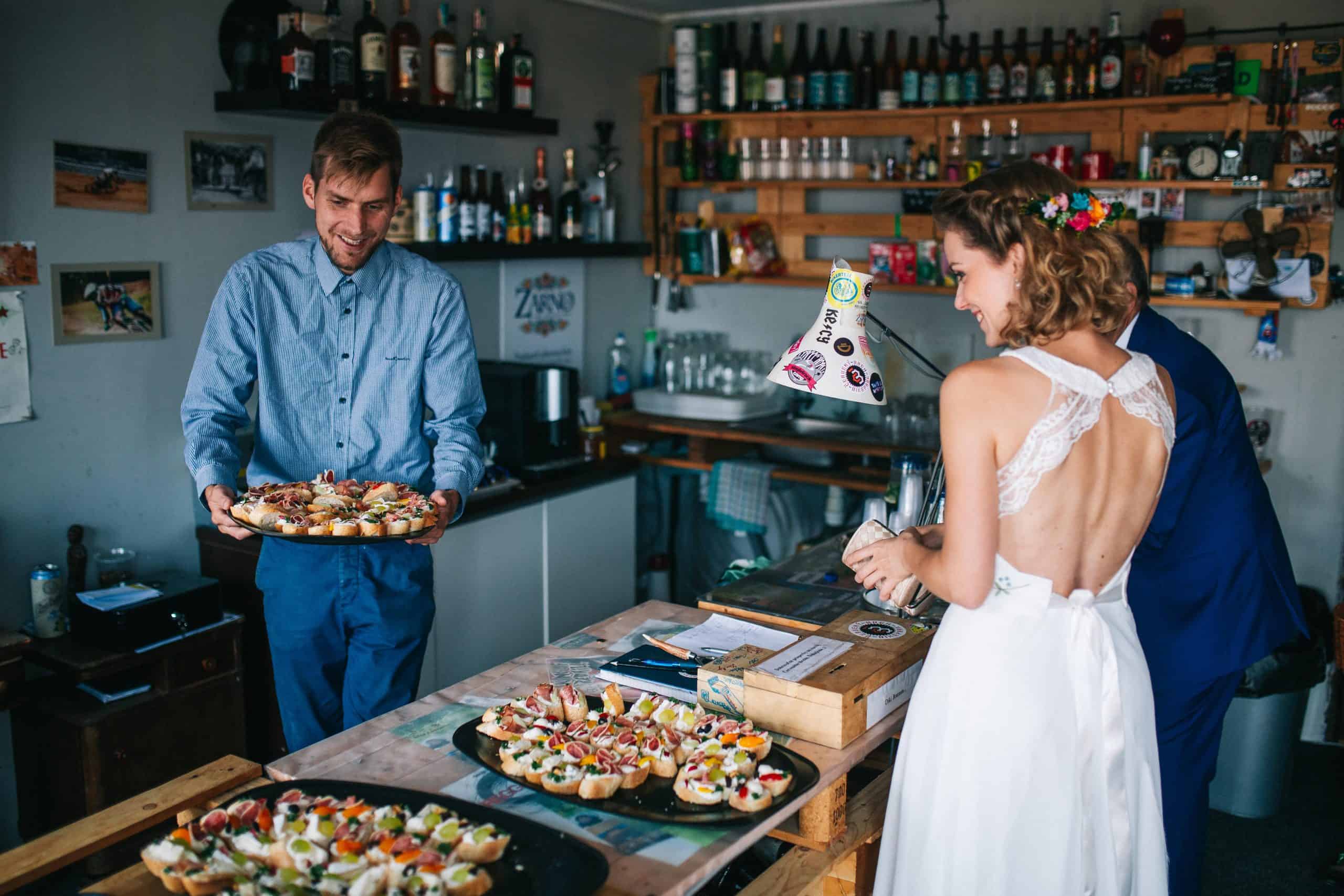
It is precious to know that other members face several similar problems in their development and efforts to improve their work as we do. Hearing their practical and theoretical experiences is inspiring, and at the same time, it helps our confidence. We would really like to collaborate in the future. We try to lay the foundations for it during individual training sessions.
We want to thank everyone who made it possible for us to participate in the program. Let’s keep our fingers crossed that we can complete our Escalator mission. I think that everyone determined to move forward with their project should join this program in the future.
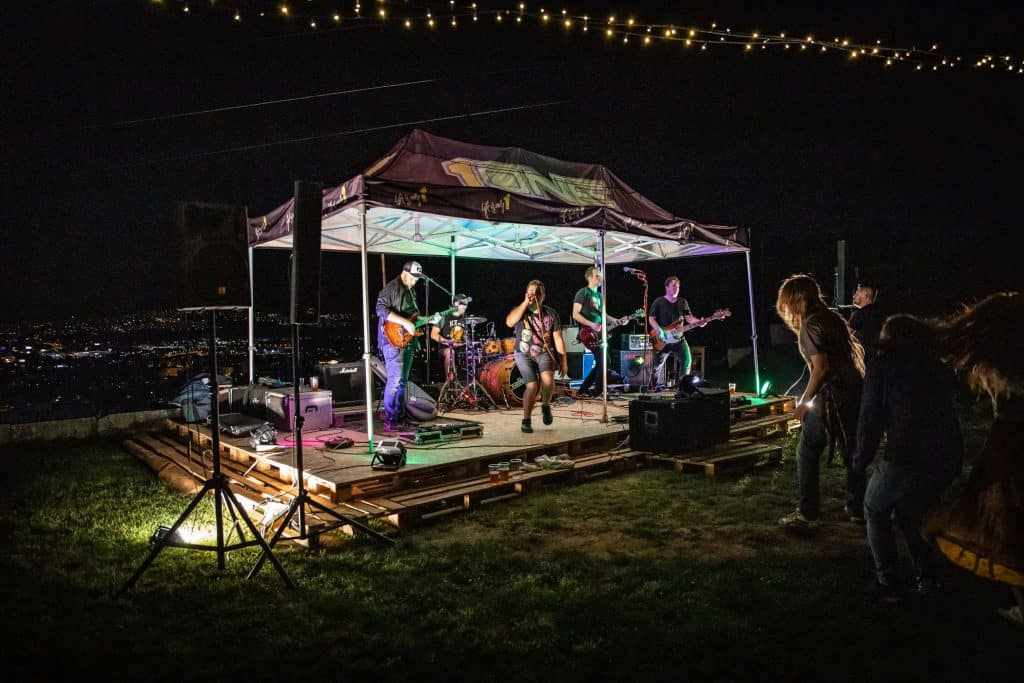
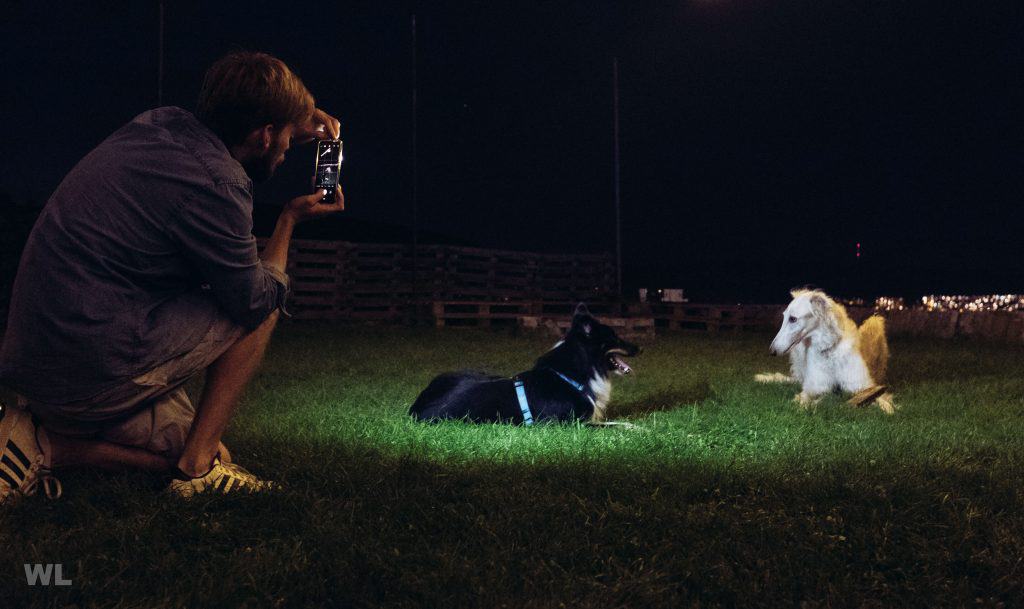
Escalator was supported using public funding by Slovak Arts Council.
